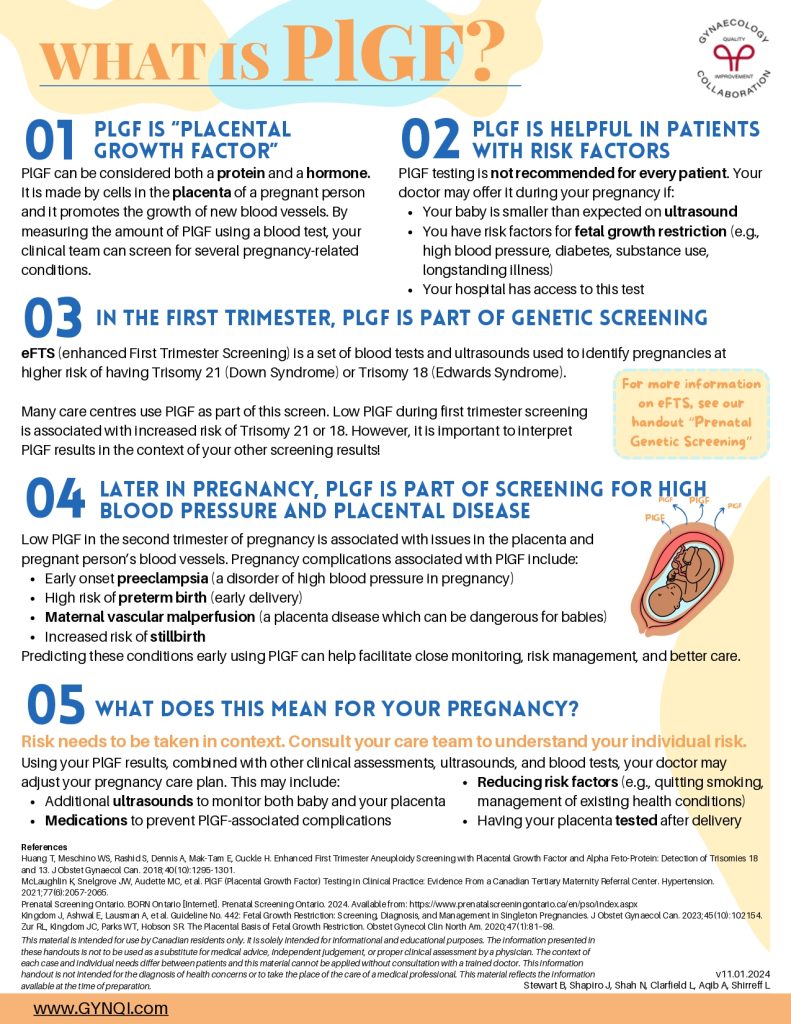
What Is Plgf?
01 PlGF Is “Placental Growth Factor”
PlGF can be considered both a protein and a hormone. It is made by cells in the placenta of a pregnant person and it promotes the growth of new blood vessels. By measuring the amount of PlGF using a blood test, your clinical team can screen for several pregnancy-related conditions.
02 PlGF Is Helpful In Patients With Risk factors
PlGF testing is not recommended for every patient. Your doctor may offer it during your pregnancy if:
- Your baby is smaller than expected on ultrasound
- You have risk factors for fetal growth restriction (e.g., high blood pressure, diabetes, substance use, longstanding illness)
- Your hospital has access to this test
03 In The First Trimester, PlGF Is Part of Genetic Screening
eFTS (enhanced First Trimester Screening) is a set of blood tests and ultrasounds used to identify pregnancies at higher risk of having Trisomy 21 (Down Syndrome) or Trisomy 18 (Edwards Syndrome).
Many care centres use PlGF as part of this screen. Low PlGF during first trimester screening is associated with increased risk of Trisomy 21 or 18. However, it is important to interpret PlGF results in the context of your other screening results!
For more information on eFTS, see our handout “Prenatal Genetic Screening”.
04 Later In Pregnancy, PlGF Is Part of Screening For High Blood Pressure and Placental Disease
Low PlGF in the second trimester of pregnancy is associated with issues in the placenta and pregnant person’s blood vessels. Pregnancy complications associated with PlGF include:
- Early onset preeclampsia (a disorder of high blood pressure in pregnancy)
- High risk of preterm birth (early delivery)
- Maternal vascular malperfusion (a placenta disease which can be dangerous for babies)
- Increased risk of stillbirth
Predicting these conditions early using PlGF can help facilitate close monitoring, risk management, and better care.
05 What Does This Mean For Your Pregnancy?
Risk needs to be taken in context. Consult your care team to understand your individual risk.
Using your PlGF results, combined with other clinical assessments, ultrasounds, and blood tests, your doctor may adjust your pregnancy care plan. This may include:
- Additional ultrasounds to monitor both baby and your placenta
- Medications to prevent PlGF-associated complications
- Reducing risk factors (e.g., quitting smoking, management of existing health conditions)
- Having your placenta tested after delivery



